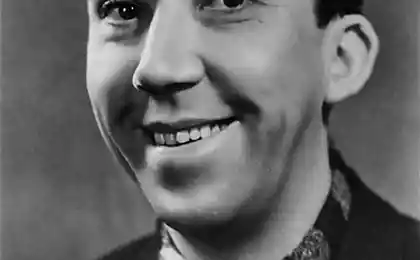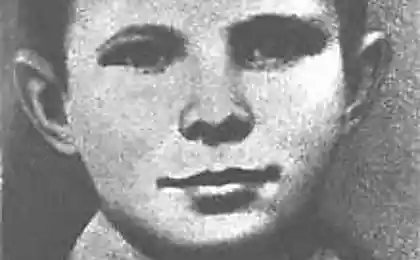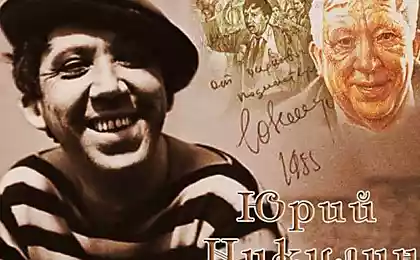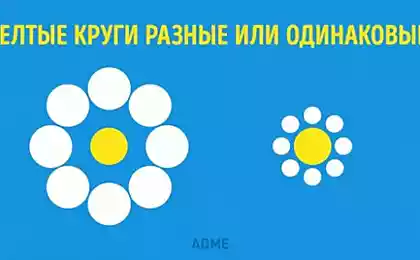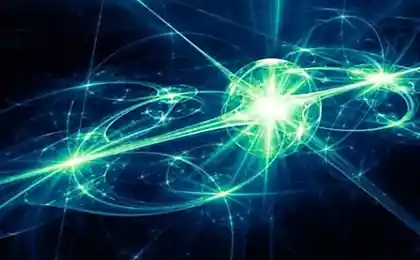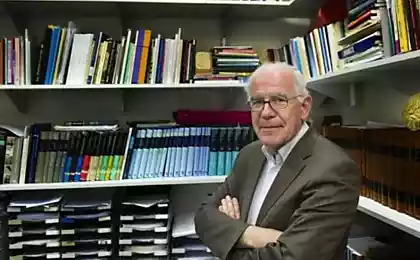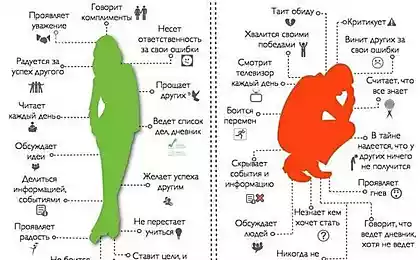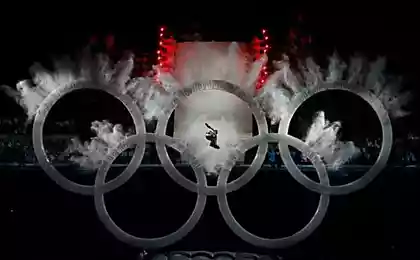581
The brain decides without asking the person
People only for the reason consider themselves free,
what their actions, they are aware of, and the reasons, their caused, I don't know.
Spinoza
The existence of free will is one of the most important problems of philosophy since antiquity. Whether we accept the decision consciously, or perhaps our choice is without consciousness long before we know it?
Immanuel Kant turned the problem of free will among its antinomies — questions, the answers to which lie beyond the bounds of possible knowledge. But scientists are not afraid of challenges, which did not succeed philosophers. The study of free will the subject of hundreds of experimental work of psychologists and neuroscientists, and, it seems, the answer is found: the reason for our actions is not a conscious choice.
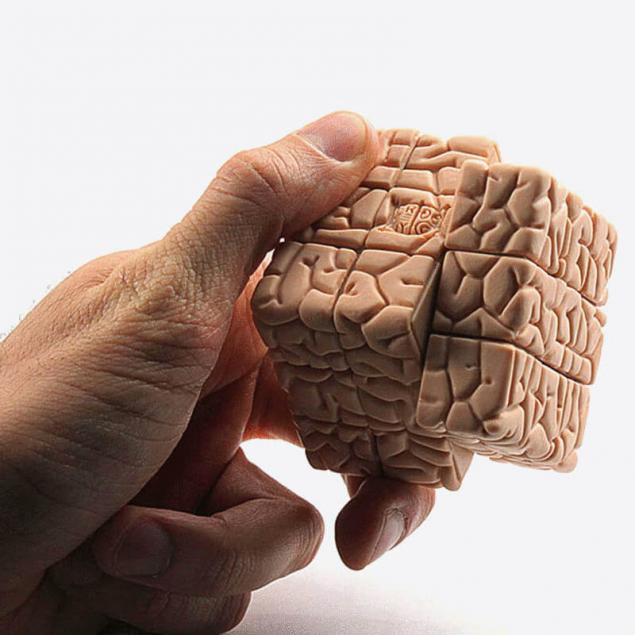
One of the leading specialists in this field is Professor of psychology at Harvard University, Daniel Wegner, who has compiled the available experimental data in the monograph "the Illusion of conscious will". As the name implies labour, Wegner concludes that free will is an illusion.
Free will is not the cause of our actions, but accompanies them as well as a low battery alarm on the mobile phone screen is accompanied by the discharge of the battery, but is not the cause of the discharge. It is just a feeling, which allows to distinguish the action performed by us, from processes that do not depend on us.
When we do the desired thing, we tend to interpret this as a manifestation of free will. However, sometimes people commit the act, but feelings sold of free will do not feel.
Wegner, carpenter and a number of other psychologists interested in unusual effects that occur during the seance. A group of people puts his hands on the round table which can rotate. The participants of the session believe that the table will start to rotate at the will of their intended spirit. Often the table is really in motion, and every single group member is ready to swear that they are not involved in this rotation. When on the table lay a Bible, a rotation to the universal shock stops.
To test the involvement of the spirits of the rotation of the table by nature of the fingerprints left by participants in a seance on the dusty countertop. It's one thing when the fingers are passively resisting the rotating table, and quite another when they actively unwind the table. The direction of the strokes will be different.
Observations have shown that the people, not the spirits of the unwind table. But people didn't sense of free will and because he experienced the illusionthat the table rotates to someone else. Another type of Ouija uses a cardboard Board, which shows words or letters. For example, the words "Yes" and "no". A group of people takes the CD and holds it above the Board. They ask questions designed to spirit, and that brings the disc to one of the answers. The answers obtained are logical, for example, the question "are you alive?" the spirit consistently respond "no". As in the previous example, people believe that do not cause movement.
However, if the participants are blindfolded and secretly deploy them to the Board, the answers of the "spirits" cease to be logical, that is, the responses chosen by people and not spirits, though they do not realize it. Such examples, called the automatism, there are many.
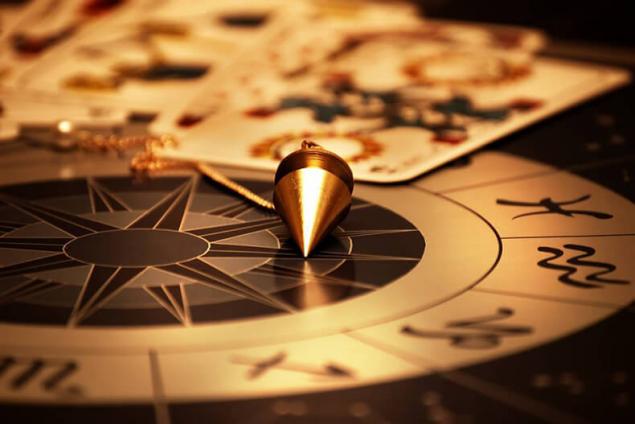
But the opposite is true: we often feel the freedom of will in action that did not commit. For example, in several experiments, described by Wegner, people have pleaded guilty for pressing the "wrong" key of a computer, which they are not pressed. It is enough to provide false witness for the error, and the nature of the error must be such that its Commission seemed plausible. In some cases, people not only feels a sense of guilt for imperfect they act, but also "remembers" the details of his violations.
Wegner gives the example from his own life when he sat down to play a computer game and only after some time of passionate keystroke aware that it is not controls the game and watching the Intro to it.
Serious violations of the feeling of Agency can occur in patients with disorders of the brain. For example, the article describes the clinical cases, when people feel that they control the movement of the sun across the sky or cars on the roads. They believe their will is the cause of these movements. On the other hand, there are people sick with syndrome of alien hand who believe that their hand is living his life, not subject to their will. To the casual observer all movement of the hands look like conscious: the hand can perform complex actions, like buttoning a shirt. But the owner is convinced that the hand controlled by someone else. Some people believe that they are governed by "from space", do not feel their will for the committed actions.
Thus, free will is the feeling that does not always correspond to reality.
We know that free will might be an illusion and may ask: could any sense of free will to be an illusion? When we begin to pronounce the long monologue, we don't think through it from beginning to end, but every word falls into its place and fit in fine linked picture, like we knew the entire monologue from the beginning. Our consciousness can never know what we will say next, but somehow this does not prevent us to Express their thoughts. Isn't it strange?
However, the arguments are not limited to philosophical reflections. A number of scientific studies evidence in favor of the fact that we are aware of "free will" is not the cause of our actions. Psychologist Benjamin Libet found in the brains of so-called "preparedness", the excitation in a certain area of the brain that occurs over hundreds of milliseconds before people will take a conscious decision to act. In the experiment people were asked to press the button at any time when they want to.
In this case participants were required to note the time at which they made a conscious decision to press the button. Surprising was the fact that experimenters, measuring preparedness, could predict the moment you press the button for hundreds of milliseconds before ipitomy realized that he decided to press the button. The chronology was this: first, scientists saw the potential jump of readiness on the meter, and then the man realized that he wants to press the button, and after that happened the press of a button.
Initially, many scientists reacted to these experiences with skepticism. It was suggested that this delay may be associated with violation of attention of the subjects. However, subsequent experiments by Haggard and other researchers, have shown that although attention affect the latency, the main effect is played: readiness potential indicates the will of man to push the button before the person experiences that will.
In 1999, the experiments of neuroscientists Patrick haggard and Martin Ijmeer has shown that if given a choice between two buttons, measuring the same capabilities of readiness, it is possible to predict which button a person chooses before he is aware of your choice.
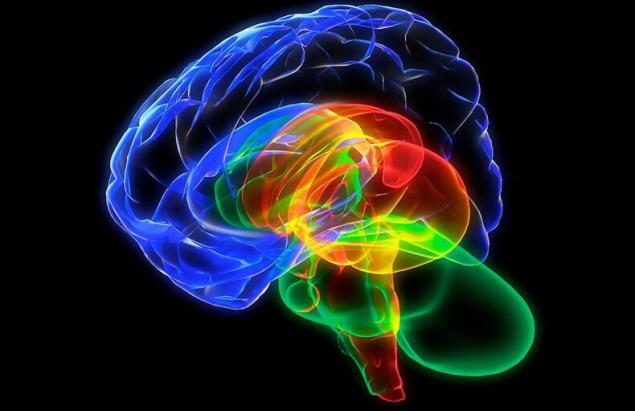
In 2004, a group of neuroscientists published in the respected scientific journal Nature Neuroscience article that people with certain damage to the area of the cortex of the brain called the parietal, can't say when they decided to start moving, though, and can indicate the beginning of the movement. The researchers suggested that this brain area is responsible for creating the model for subsequent movements.
In 2008, another group of scientists tried to replicate experiments with the push buttons using more modern technologies — functional magnetic resonance imaging (MRI). MRI allows us to investigate changes in the activity of different parts of the brain, watching the change of blood flow (the most active brain areas require more oxygen). Subjects were put in front of the screen, which varied letters. Subjects were required to remember the appearance of what letter they have made a choice between two buttons. Scientists have tried to determine the excitation which areas of the brain contains the most information about the choices people make: they click it on the left or the right button.
Taking into account all statistical amendments, the brain activity in the above-mentioned parietal cortex (and a few other sites) allow to predict the choice of the person before he realized him. In some conditions, the forecast was able to exercise for 10 seconds until you make a conscious decision subjects!
Neuroscientist John-Dylan Haynes and colleagues who participated in this studycame to the conclusion that the network governing parts of the brain responsible for decision-making begins to take shape long before we begin to suspect.
This work was also published in the journal Nature Neuroscience. A review of "God-Gene", we touched on the research of Roger Sperry, the object of which was the people who survived the operation to separate the hemispheres of the brain. For these studies in 1981, he was awarded the Nobel prize. Sperry showed that people with a severed corpus callosum (bridge between left and right hemispheres of the brain) are two separate personalities — one in left other in the right hemisphere.
To the question of free will, it has a direct application: the surprising fact, that two persons of such a person is not conflict and not even aware of the existence of each other. Hemisphere divided, but for them it's like nothing has changed! The impression that any action taken by our body, is interpreted by the consciousness (consciousnesses?) as a result the manifestation of his free will, even if it wasn't. Imagine two people living in one room, but do not know about the neighbor. So, whenever one opens a window, each of them convinced that he opened it.
The belief that we can freely and consciously choose our actions, is fundamental to our picture of the world. However, this view is not consistent with the recent experimental data that indicate that our subjective perception of freedom is nothing more than an illusion that our actions are determined by processes in our brain, hidden from our consciousness the events and long before the sensations of the decision.published
Author: Yuri Panchin
P. S. And remember, only by changing their consumption — together we change the world! ©
Source: blog.okhelps.com/mozg-reshaet-ne-sprashivaya-cheloveka/?utm_source=facebook&utm_medium=post
what their actions, they are aware of, and the reasons, their caused, I don't know.
Spinoza
The existence of free will is one of the most important problems of philosophy since antiquity. Whether we accept the decision consciously, or perhaps our choice is without consciousness long before we know it?
Immanuel Kant turned the problem of free will among its antinomies — questions, the answers to which lie beyond the bounds of possible knowledge. But scientists are not afraid of challenges, which did not succeed philosophers. The study of free will the subject of hundreds of experimental work of psychologists and neuroscientists, and, it seems, the answer is found: the reason for our actions is not a conscious choice.

One of the leading specialists in this field is Professor of psychology at Harvard University, Daniel Wegner, who has compiled the available experimental data in the monograph "the Illusion of conscious will". As the name implies labour, Wegner concludes that free will is an illusion.
Free will is not the cause of our actions, but accompanies them as well as a low battery alarm on the mobile phone screen is accompanied by the discharge of the battery, but is not the cause of the discharge. It is just a feeling, which allows to distinguish the action performed by us, from processes that do not depend on us.
When we do the desired thing, we tend to interpret this as a manifestation of free will. However, sometimes people commit the act, but feelings sold of free will do not feel.
Wegner, carpenter and a number of other psychologists interested in unusual effects that occur during the seance. A group of people puts his hands on the round table which can rotate. The participants of the session believe that the table will start to rotate at the will of their intended spirit. Often the table is really in motion, and every single group member is ready to swear that they are not involved in this rotation. When on the table lay a Bible, a rotation to the universal shock stops.
To test the involvement of the spirits of the rotation of the table by nature of the fingerprints left by participants in a seance on the dusty countertop. It's one thing when the fingers are passively resisting the rotating table, and quite another when they actively unwind the table. The direction of the strokes will be different.
Observations have shown that the people, not the spirits of the unwind table. But people didn't sense of free will and because he experienced the illusionthat the table rotates to someone else. Another type of Ouija uses a cardboard Board, which shows words or letters. For example, the words "Yes" and "no". A group of people takes the CD and holds it above the Board. They ask questions designed to spirit, and that brings the disc to one of the answers. The answers obtained are logical, for example, the question "are you alive?" the spirit consistently respond "no". As in the previous example, people believe that do not cause movement.
However, if the participants are blindfolded and secretly deploy them to the Board, the answers of the "spirits" cease to be logical, that is, the responses chosen by people and not spirits, though they do not realize it. Such examples, called the automatism, there are many.

But the opposite is true: we often feel the freedom of will in action that did not commit. For example, in several experiments, described by Wegner, people have pleaded guilty for pressing the "wrong" key of a computer, which they are not pressed. It is enough to provide false witness for the error, and the nature of the error must be such that its Commission seemed plausible. In some cases, people not only feels a sense of guilt for imperfect they act, but also "remembers" the details of his violations.
Wegner gives the example from his own life when he sat down to play a computer game and only after some time of passionate keystroke aware that it is not controls the game and watching the Intro to it.
Serious violations of the feeling of Agency can occur in patients with disorders of the brain. For example, the article describes the clinical cases, when people feel that they control the movement of the sun across the sky or cars on the roads. They believe their will is the cause of these movements. On the other hand, there are people sick with syndrome of alien hand who believe that their hand is living his life, not subject to their will. To the casual observer all movement of the hands look like conscious: the hand can perform complex actions, like buttoning a shirt. But the owner is convinced that the hand controlled by someone else. Some people believe that they are governed by "from space", do not feel their will for the committed actions.
Thus, free will is the feeling that does not always correspond to reality.
We know that free will might be an illusion and may ask: could any sense of free will to be an illusion? When we begin to pronounce the long monologue, we don't think through it from beginning to end, but every word falls into its place and fit in fine linked picture, like we knew the entire monologue from the beginning. Our consciousness can never know what we will say next, but somehow this does not prevent us to Express their thoughts. Isn't it strange?
However, the arguments are not limited to philosophical reflections. A number of scientific studies evidence in favor of the fact that we are aware of "free will" is not the cause of our actions. Psychologist Benjamin Libet found in the brains of so-called "preparedness", the excitation in a certain area of the brain that occurs over hundreds of milliseconds before people will take a conscious decision to act. In the experiment people were asked to press the button at any time when they want to.
In this case participants were required to note the time at which they made a conscious decision to press the button. Surprising was the fact that experimenters, measuring preparedness, could predict the moment you press the button for hundreds of milliseconds before ipitomy realized that he decided to press the button. The chronology was this: first, scientists saw the potential jump of readiness on the meter, and then the man realized that he wants to press the button, and after that happened the press of a button.
Initially, many scientists reacted to these experiences with skepticism. It was suggested that this delay may be associated with violation of attention of the subjects. However, subsequent experiments by Haggard and other researchers, have shown that although attention affect the latency, the main effect is played: readiness potential indicates the will of man to push the button before the person experiences that will.
In 1999, the experiments of neuroscientists Patrick haggard and Martin Ijmeer has shown that if given a choice between two buttons, measuring the same capabilities of readiness, it is possible to predict which button a person chooses before he is aware of your choice.

In 2004, a group of neuroscientists published in the respected scientific journal Nature Neuroscience article that people with certain damage to the area of the cortex of the brain called the parietal, can't say when they decided to start moving, though, and can indicate the beginning of the movement. The researchers suggested that this brain area is responsible for creating the model for subsequent movements.
In 2008, another group of scientists tried to replicate experiments with the push buttons using more modern technologies — functional magnetic resonance imaging (MRI). MRI allows us to investigate changes in the activity of different parts of the brain, watching the change of blood flow (the most active brain areas require more oxygen). Subjects were put in front of the screen, which varied letters. Subjects were required to remember the appearance of what letter they have made a choice between two buttons. Scientists have tried to determine the excitation which areas of the brain contains the most information about the choices people make: they click it on the left or the right button.
Taking into account all statistical amendments, the brain activity in the above-mentioned parietal cortex (and a few other sites) allow to predict the choice of the person before he realized him. In some conditions, the forecast was able to exercise for 10 seconds until you make a conscious decision subjects!
Neuroscientist John-Dylan Haynes and colleagues who participated in this studycame to the conclusion that the network governing parts of the brain responsible for decision-making begins to take shape long before we begin to suspect.
This work was also published in the journal Nature Neuroscience. A review of "God-Gene", we touched on the research of Roger Sperry, the object of which was the people who survived the operation to separate the hemispheres of the brain. For these studies in 1981, he was awarded the Nobel prize. Sperry showed that people with a severed corpus callosum (bridge between left and right hemispheres of the brain) are two separate personalities — one in left other in the right hemisphere.
To the question of free will, it has a direct application: the surprising fact, that two persons of such a person is not conflict and not even aware of the existence of each other. Hemisphere divided, but for them it's like nothing has changed! The impression that any action taken by our body, is interpreted by the consciousness (consciousnesses?) as a result the manifestation of his free will, even if it wasn't. Imagine two people living in one room, but do not know about the neighbor. So, whenever one opens a window, each of them convinced that he opened it.
The belief that we can freely and consciously choose our actions, is fundamental to our picture of the world. However, this view is not consistent with the recent experimental data that indicate that our subjective perception of freedom is nothing more than an illusion that our actions are determined by processes in our brain, hidden from our consciousness the events and long before the sensations of the decision.published
Author: Yuri Panchin
P. S. And remember, only by changing their consumption — together we change the world! ©
Source: blog.okhelps.com/mozg-reshaet-ne-sprashivaya-cheloveka/?utm_source=facebook&utm_medium=post
Read ALL! As sugar destroys the liver and brain
Don't turn childhood into a race school-homework-courses-sports-food-sleep!

